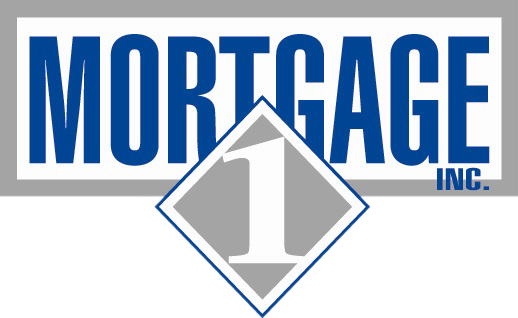
A Custom Mortgage Plan for Doctors
August 5, 2020
Mortgage 1 Grand Rapids: The Best Mortgage Lender in One of America’s Best Cities
August 21, 2020Make Your Getaway Dreams Come True
August is the traditional vacation month for many Americans.
In Michigan, vacationers go “up north” for relaxation and fun. Some own waterfront cottages or cabins in the woods. Others may spend time at a lakeside rental.
For those who do not own a place, the experience of getting away for a week or two inspires dreams of buying a vacation home.
If you fall into this category, this article is for you. We’ve assembled tips for buying and financing the vacation home of your dreams.
These guidelines apply whether you want a place on the Great Lakes in Michigan, near Put-in-Bay in Ohio, on Florida’s Gulf Coast, in California’s Napa Valley, or on the outer banks of Texas.
“We love helping people make their vacation home dreams affordable,” says Mortgage 1 CEO Mark Workens. “We have helped hundreds of vacation home buyers.”
Let us help you finance your vacation home. Are you considering a vacation home? Make your dream a reality. Locate a Mortgage 1 loan officer near you.
The Benefits of Owning a Vacation Home
We’ve already alluded to one of the benefits of owning a vacation home: having a place to call your own.
There are other benefits, too.
- If you vacation often, you could save money in the long run. Vacation rentals during peak seasons like summer or the winter ski season can get expensive. They might equal or exceed the cost of annual mortgage payments on a place you own outright.
- You could generate income by renting out your vacation home.
- Your vacation home may appreciate in value over time, providing you with an investment that builds wealth.
- There could be tax advantages to owning a vacation home. (Consult your tax advisor.)
- You have a place to potentially retire to.
- You have a place you can go to anytime, year-round, to relax and get away.
- You have a place to entertain family and friends and start new traditions.
The Realities of Owning a Vacation Home
As with most things in life, owning a vacation home does have its flip side. None of these are insurmountable, but you should be aware that when you own a vacation home:

- Depending on the location, vacation homes can be expensive to buy. A condo or small cabin in woods is within many people’s reach, but waterfront property on a sandy beach might not be.
- You will be paying a mortgage, property tax, insurance, utilities, and maintenance expenses for two homes.
- Real estate isn’t as liquid an asset like stock or bonds. While real estate generally appreciates over time, there are occasions where prices drop. If you need to sell during a market or economic downturn, you may have to take a reduced price.
- In some places, you may not be able to rent your property. Or, there are restrictions on how often and how long you can rent.
“In Key West and other places in Florida, you have to get a special license to rent your property for less than a month,” says loan officer Kinsy Prescott of the Mortgage 1 Cape Coral branch.
Financing a Vacation Home
Financing a vacation home is different than financing your primary home. How so?
- If you already have a primary home mortgage, the vacation property mortgage will be considered a “second home” mortgage.
- Second home mortgages sit between primary home mortgages and investment property mortgages.
- Second home mortgages are a bit tougher to qualify for. Lenders often want larger down payments. And the interest rate may be higher. Why? The reason is, a vacation home represents a larger risk to the lender. If a homeowner is having trouble making the payments on their vacation home vs. their primary home, most owners will make their primary mortgage payments. This puts the second home at greater risk. Lenders want larger down payments to ensure borrowers have more skin in the game.
- If you have a primary home mortgage, your income needs to be high enough to justify both the primary and secondary mortgage payments.
Vacation Home vs. Investment Property

One thing in your favor when it comes to financing a vacation property home is, if you plan to use the property as a true second home, it’s less expensive than if you plan to use it as an investment property.
“A second home mortgage tends to be significantly easier to qualify for than an investment property loan,” says branch manager Mark Copland of Mortgage 1’s Livonia office. “And it’s also typically less expensive — in terms of interest rates and fees — than an investment property loan.”
From his locations in Livonia and Ann Arbor, Copeland has helped buyers obtain vacation homes all across the state.
Tips for Purchasing a Vacation Home
Here are tips for getting your dream vacation home:

- Be familiar with the area in which you want to purchase.
- Find a local real estate agent in the area.
- Start saving now. Down payments on vacation homes can be as much as 30% higher than on primary residences.
- Go with a lender you can trust. For a vacation home, while you should use a local real estate agent, you can use whichever lender you are comfortable with.
- Get preapproved.
“Stricter requirements and higher costs for vacation homes means there are fewer qualified buyers,” says Mortgage 1 Port Huron branch manager Chuck Wansedel. “If you are preapproved, that makes your offer carry more weight.”
From their office in Port Huron, Wansedel and his team have helped dozens of families purchase vacation homes along the shores of Lake Huron in Michigan’s thumb region.
Make Your Vacation Dreams Come True
Are you considering a vacation home? Do you have questions? Give us a call at 866-532-0550 or locate a Mortgage 1 loan officer near you.





